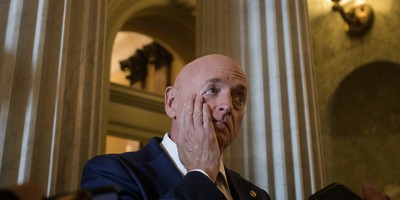They have a long way to go to make their organization’s name a reality, but the Campaign for a Commercial-Free Childhood claimed an important recent victory.
CCFC has for years sought to reveal the truth about so-called educational videos designed ostensibly to increase the brainpower of growing babies. Studies show no measurable gains in intelligence or verbal skills associated with baby videos. In fact, researchers at the University of Washington found that for every hour per day of screen viewing by infants aged 8 to 16 months, a measurable decrease occurs in communicative development.

In 2006, CCFC filed a Federal Trade Commission complaint against Baby Einstein and brand owner Disney, charging that the company’s marketing misled parents into believing the videos could positively impact development and learning.
At that time, Disney stopped claiming that Baby Einstein videos were educational (in so many words). But they didn’t admit outright that they were selling a product under false pretenses.
CCFC kept up the pressure and last week, Disney announced it will refund buyers for up to four Baby Einstein videos. Not that there’s anything wrong with them, mind you, but just in case some folks mistakenly believed the product would make their babies smarter. The company says this is Disney’s standard quality guarantee.
There are a few lessons to be learned from Disney’s non-admission of false advertising. Caveat Emptor, is one. A savvy consumer -- or just a reasonably rational parent – ought to wonder if it’s realistic to believe plopping a baby in front of a video screen can advance his or her intelligence.
“Be careful what you wish for” is another possible lesson, since according to biographers, Albert Einstein enjoyed a normal childhood, “except that to his family's irritation, he learnt to speak at a late age.”
Recommended
But perhaps the most crucial lesson for parents is to remember that while babies don’t come with instructions, as if oft noted at baby showers, we are blessed with a certain intuitive facility to care for them. And it turns out that the thing that comes most naturally – sitting on the floor, playing, singing and cooing – are the things that actually do advance the cognitive development of babies.
It might seem as though the Baby Einstein (and Baby Mozart and Baby Galileo) concept was meant to play into the competitive parenting instincts of those who would pay for videos today, Harvard tuition tomorrow.
According to Josh Golin of the CCFC, parents of lower socio-economic strata have been equally vulnerable to the marketing tactics for baby videos on the fear that they don’t have what their babies need to be smart. “These videos have appealed to high end consumers, yes, but also to lower end consumers who simply want help,” he says.
Sadly, those folks only wasted their hard-earned dollars. But at least now they can get some of that money back, better to spend it on strategies that work, like Jen Singer’s “Stop Second Guessing Yourself” guides to parenting.
Says Singer, “The recent blow to the Disney Corporation may be the beginning of the end of 21st century competitive parenting. Perhaps now parents will start to trust their guts more, thereby swinging the pendulum back toward more sensible, confident parenting.”
Sensible and confidant parents understand that babies don’t need animated “video board books” such as Baby Einstein. They need the animated countenance of a loving mom or dad, vibrantly engaged in the delightful work of entertaining, exciting and enlightening their infants.
“There’s no big secret to helping our infants to grow and learn, but there’s no short cut either,” Singer says. “You simply have to get down on the floor and play with them. But how hard is that?”

























Join the conversation as a VIP Member